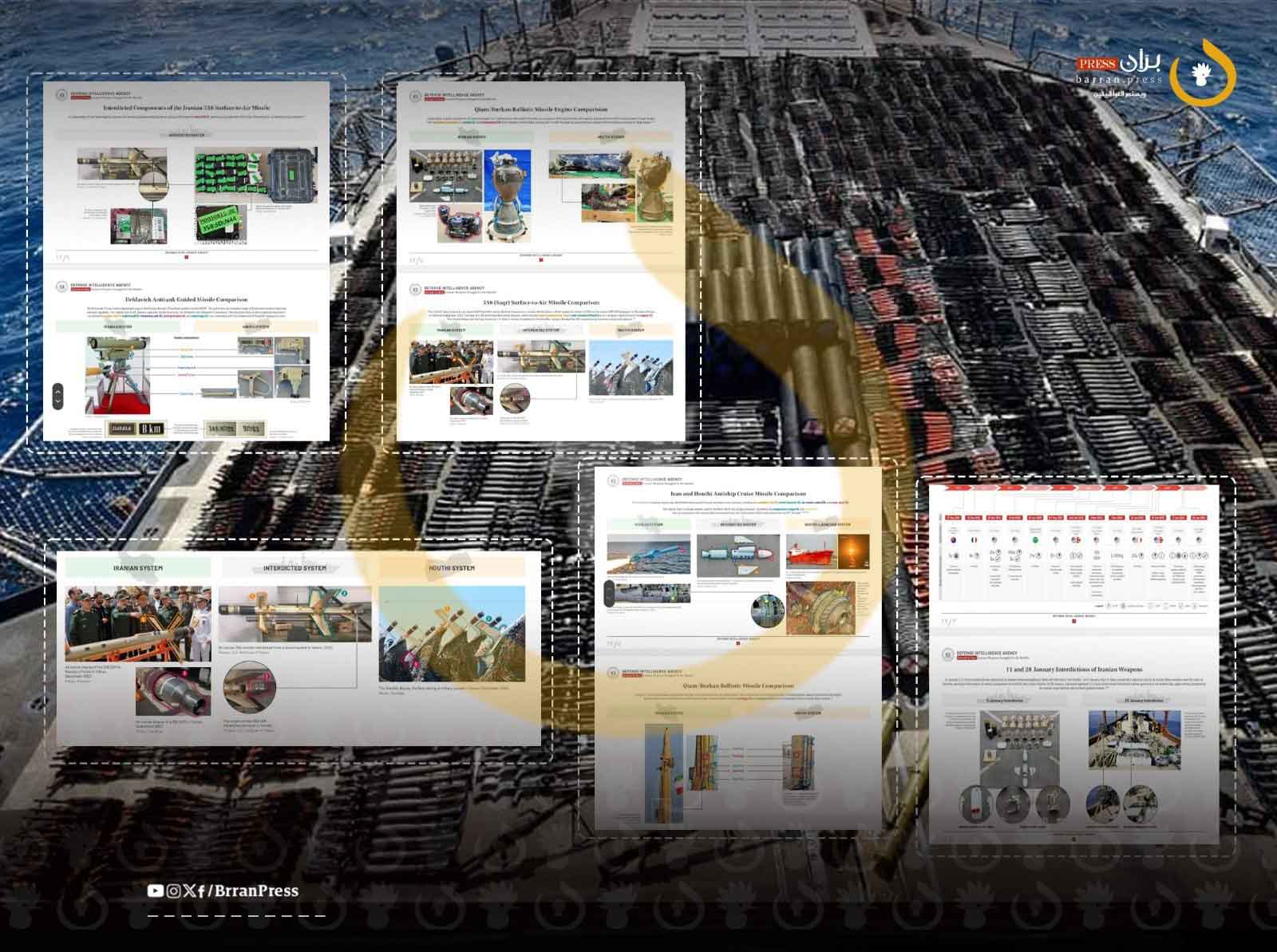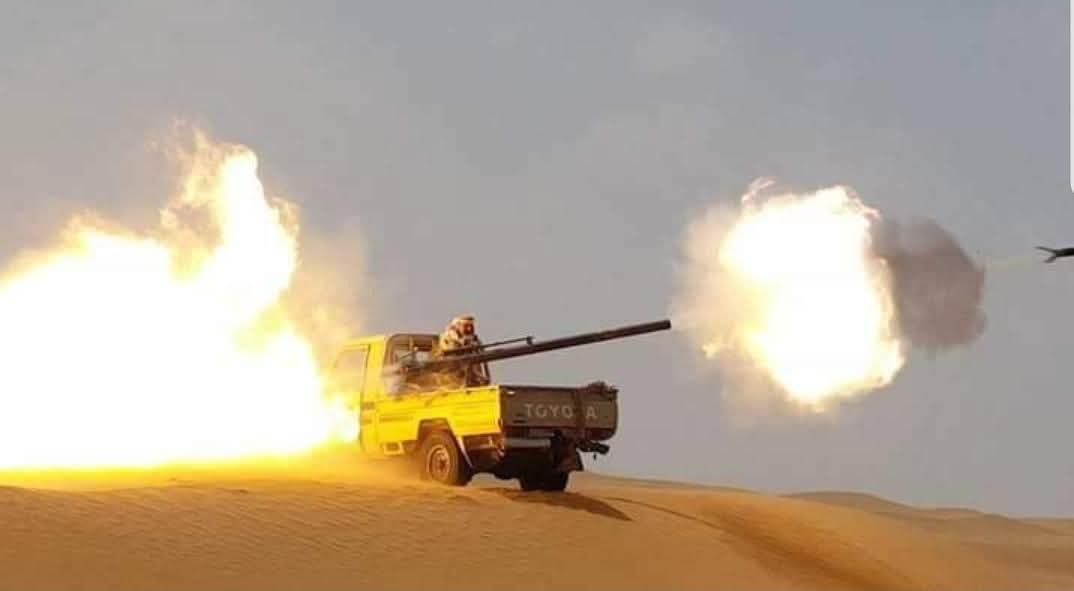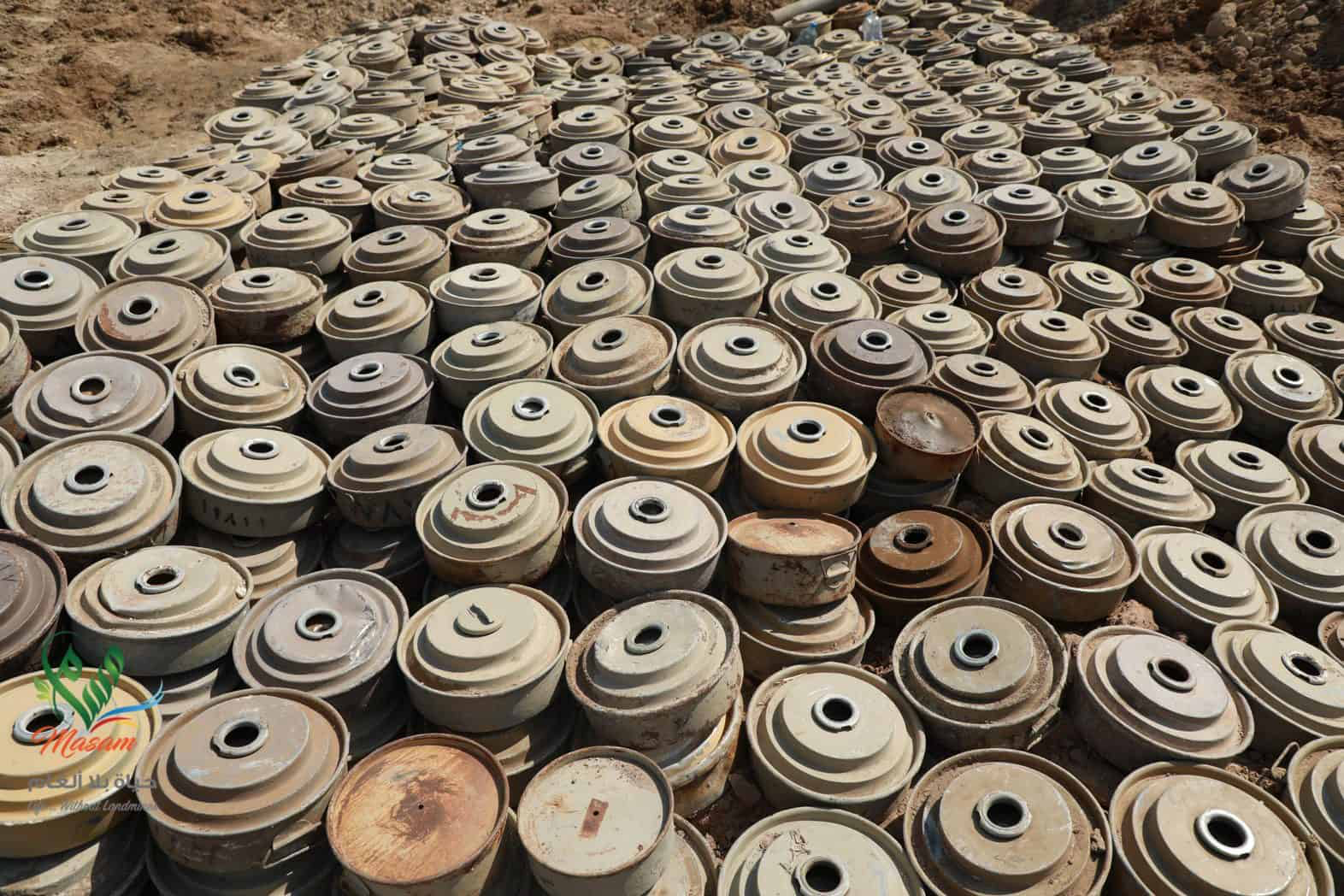
Barran Press
The US Defense Intelligence Agency (DIA) released a new report on Wednesday, July 10, 2024, providing visual evidence of Iranian weapons and components intercepted while being transported to the Houthis in Yemen.
Titled "Seized at Sea: Iranian Weapons Smuggled to the Houthis," the report, translated into Arabic by Bran Press, claims to offer "visual proof that the weapons and weapon components intercepted during transport to the Houthis on January 11 and 28 are of Iranian origin."
The report further states that this "demonstrates Iran's enabling of the Houthis' offensive campaign against commercial shipping and shipping lanes in the Red Sea."
According to the report, "Significant components for various missiles were seized, and further analysis revealed that they share near-identical characteristics with Iranian missile systems."
The DIA claims that "between 2015 and 2024, the United States and its partners have intercepted at least 20 Iranian smuggling vessels, seizing ballistic missile components, cruise missiles, surface-to-air missiles, anti-tank guided missiles, unmanned aerial vehicles, and other illicit weapons destined for the Houthis."
The agency estimates that "the Houthis have used weapons supplied by Iran to launch over 100 land and sea attacks across the Middle East, the Red Sea, and the Gulf of Aden."
The DIA stated that it issued this report "to enhance public understanding of Iran's malign activities and to provide insight into Department of Defense and national security issues." The report aims to strengthen "US intelligence efforts to demonstrate the clear links between Iranian weapons and those used in Houthi attacks."
On June 13, 2024, the United States criticized the failure of the UN mechanism for inspecting ships bound for Houthi-controlled ports, which are designated as terrorist organizations. The US asserted that negotiations led by the UN should not continue before the Houthis cease their attacks on the Red Sea.
This statement was made by the US Alternate Representative to the Security Council, Ambassador Robert Wood, during a UN Security Council session on Yemen, the text of which was published by the US Mission to the UN and translated into Arabic by Bran Press.
Addressing the Security Council members, Wood said, "We draw your attention to the fact that several documented vessels have docked at Houthi-controlled ports without inspection by the UN Verification and Inspection Mechanism (UNVIM) since October 2023."
He added, "This failure to undergo UNVIM inspection highlights the need for member states to maintain the UNVIM to ensure the delivery of essential goods to Yemen, not weapons that support the Houthis' reckless campaign against ships."
Wood expressed his hope to hold talks with "stakeholders" on how to strengthen the UNVIM, ensure its financial security, and support its operations. He noted that news agencies directly affiliated with the Islamic Revolutionary Guard Corps (IRGC) are now openly promoting that Iran is supplying the Houthis with anti-ship ballistic missiles.
Robert continued, "Iranian statements confirm what we have long said about Iran providing advanced weapons to the Houthis in violation of Security Council resolutions." He emphasized that Iran continues to "directly support and enable Houthi attacks in the Red Sea region."
The US representative called on the Security Council to "not ignore Iran's continued and brazen violations of the arms embargo, not allow it to hide behind the Houthis, and hold it accountable to Council resolutions and stop supplying them with weapons."
He stated, "It is time for the Council to take action to ensure compliance with the arms embargo and put an end to the unprecedented violations of UN sanctions. These transgressions clearly show that the Houthis are the main actor threatening a political solution between the Yemeni parties."





